… or at least they should. Talk Town Festival is about to be the talk of the town. Focused on equality, gender and feminism this 3-days’ festival is open to everyone who wants to discuss and broaden one’s perspective on the subjects of matter.
These days Denmark is re-opening, post-Corona (and so is this blog), and we can all meet again IRL. However, as a huge fan of festivals I still need to recover from the big disappoint that it will still not be possible to gather several thousands of people for concerts over a weekend.
That is why I was pleased to hear that I could still go to a festival, this time with a little less music, a lot more conversation but the same kind of willingness to listen and learn.
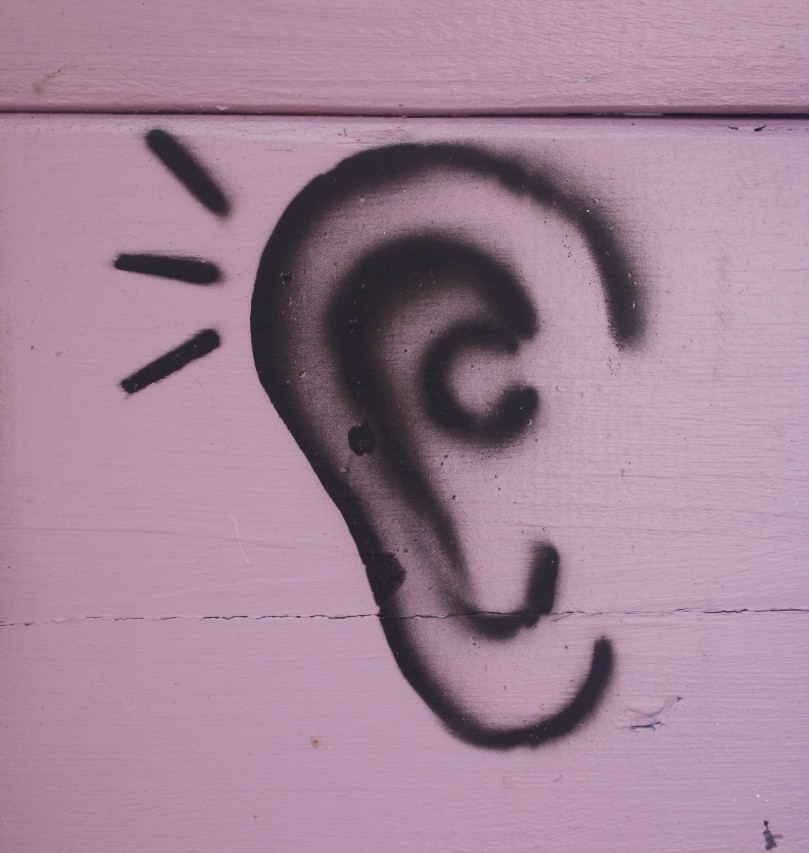
We live in a world of change. But certain things seem to change too slowly, creating inequality to minorities all over the world, and the best way to change that is to start talking to each other.
CPH:Dox said it earlier this year, and now Talk Town is about to repeat it, creating 3 stores of talks, workshops and debates at Nørre Allé 7, Copenhagen N. Complete with a stage in the yard and a café we got a Speaker’s Town.
But no town without climate, so this is a great place to start.
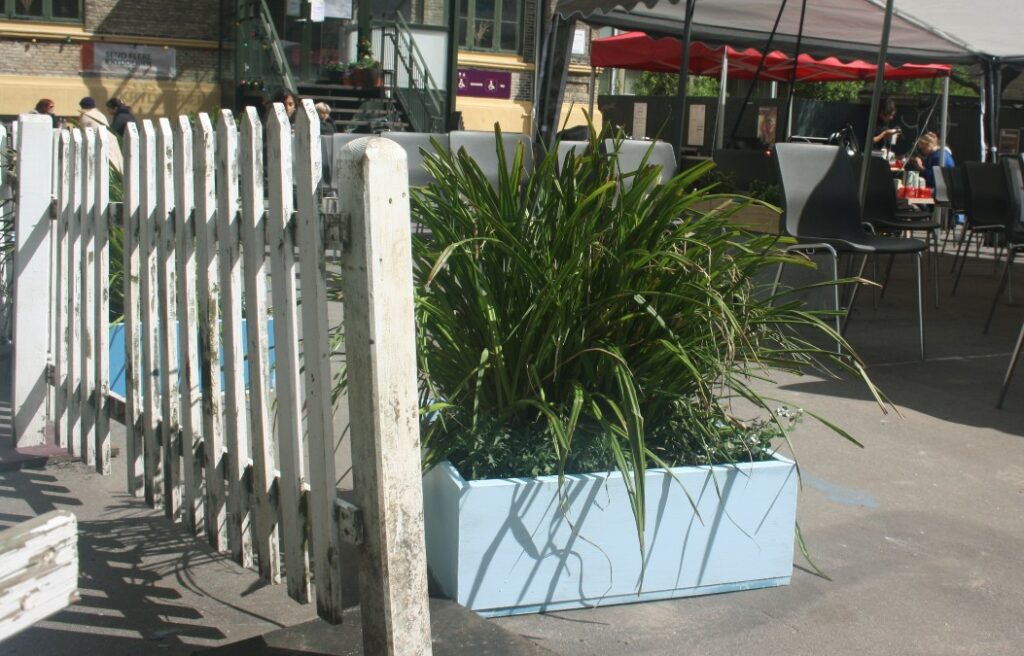
The feminist think tank TORA hosts a debate concerning climate change mitigation, equality, and gender.
Pointing out our politicians’ lack of right-here-right-now-action, endless wait of far-fetched technological solutions and our own willingness to innovate … it also comes down to gender. If we look at education, all of the S-T-E-Ms (Science, Technology, Engineering and Mathematics) lack girls, and that shows again in employed job-market, dominated by men. E.g. in 2020 only 21% of the workforce in Wind Energy are women, and only 8% of the women reaches the level of senior management according to International Renewable Energy Agency IRENA.
A lot to discuss and re-think. Which put keynoter and innovator Pernille Lützen’s challenge to all of us just right: “Let’s throw away all of our bias on what can be done. If we imagine how a future car would look like, how about taking away the wheels. What would happen then?”
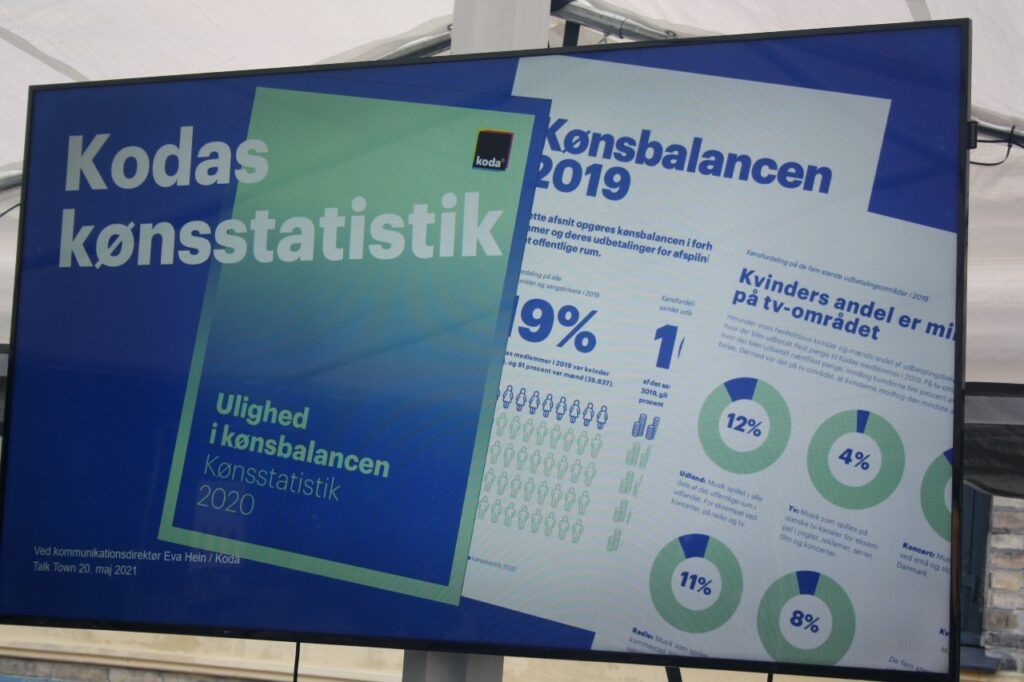
Speaking of statistics … it does not get much better looking at the music business. Koda, who represents the right of the musicians, has made their very first gender statistics among their members. The results are … depressing. Out of Koda’s 46.000, 19% are women, but only 10% of Koda’s total distributions went to women in 2019.
Out of the musician earning more than 400.000 DDK a year, 109 of them are men, and only 9 are women. Considering the areas of distributions does not make the numbers look much better: Women music creators are represented by 4% in TV, 14% in concerts, 11% in radio and 8% in streaming/downloads.
You can read the full Gender Statistics from Koda here.
In the debate following the statistics, audience discuss the concept of “gatekeeping” in the business – and maybe the gatekeepers do not even know they are gatekeepers(!).
This was previously stated by musician and students at Copenhagen Business School (CBS), Sofie Sarlvit in her thesis “The Persistent Glass Ceiling in the Danish Music Industry”. All the players in the industry admit there is a problem – they just do not see it as something they can act on.
“But let’s do it, let’s change it!” are the responses from several audiences.
The question which remains is how?
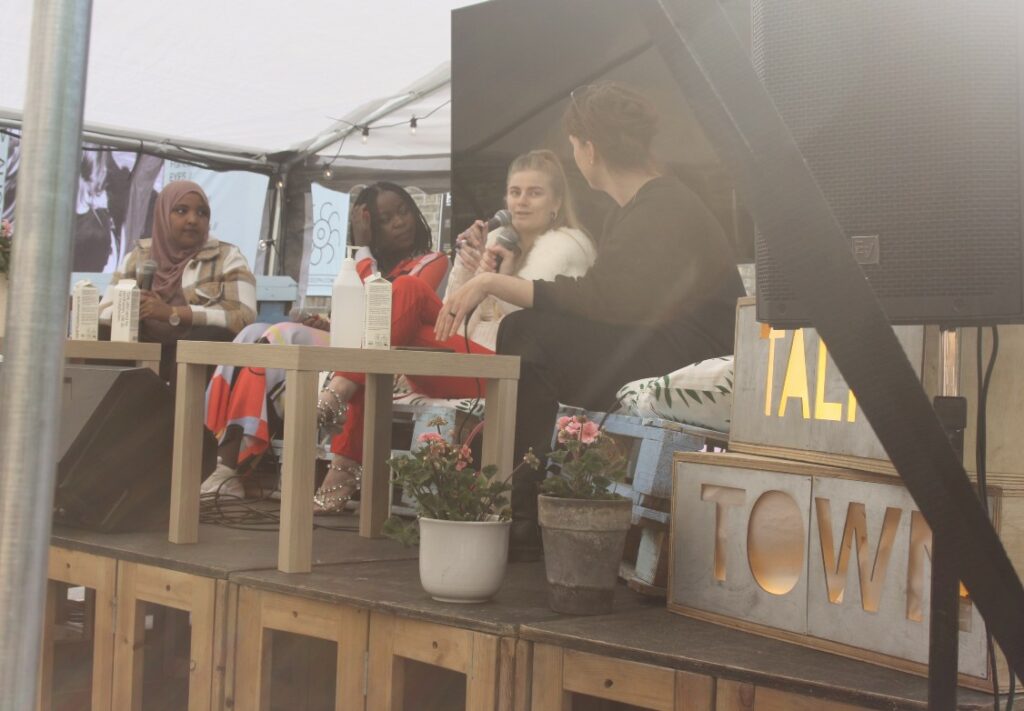
Somebody who are changing things are these cool activist-Instagrammers; Atiyo Muse, Mary Namagambe and Sofie Riise Nors. They all got different backgrounds as board member, masters in law and illustrator as well as they all put gender, minorities, racism and feminism on the public agenda. However, none of them wish to use Facebook as the place to debate anymore.
– I could spend a whole Sunday telling someone, disagreeing with me, not to call me the N-word on Facebook, Mary says, and the rest of the panel agrees. The tone of voice on Facebook is much too disrespectful. Instagram, on the other hand, is a good place to follow persons, like posts and share messages, even though it is not exactly a forum for debating.
Having thousands of followers who see them as spokespersons in their field, it can sometimes be hard for the three women to let their audience understand that they cannot post everything all the time.
– Well, sometimes I get these messages: “Could you bring up this subject, please?”. But it is not my full-time job to debate … maybe I am busy with my business, maybe I am tired or maybe I just don’t want to poste anything today, Sofie says.
It seems like we still have a job of education to do. Fortunately, most children at school have learned how to behave on social media, so the challenge might be to learn the adults how to behave.
I came to think about this when I came across these in the stairway.
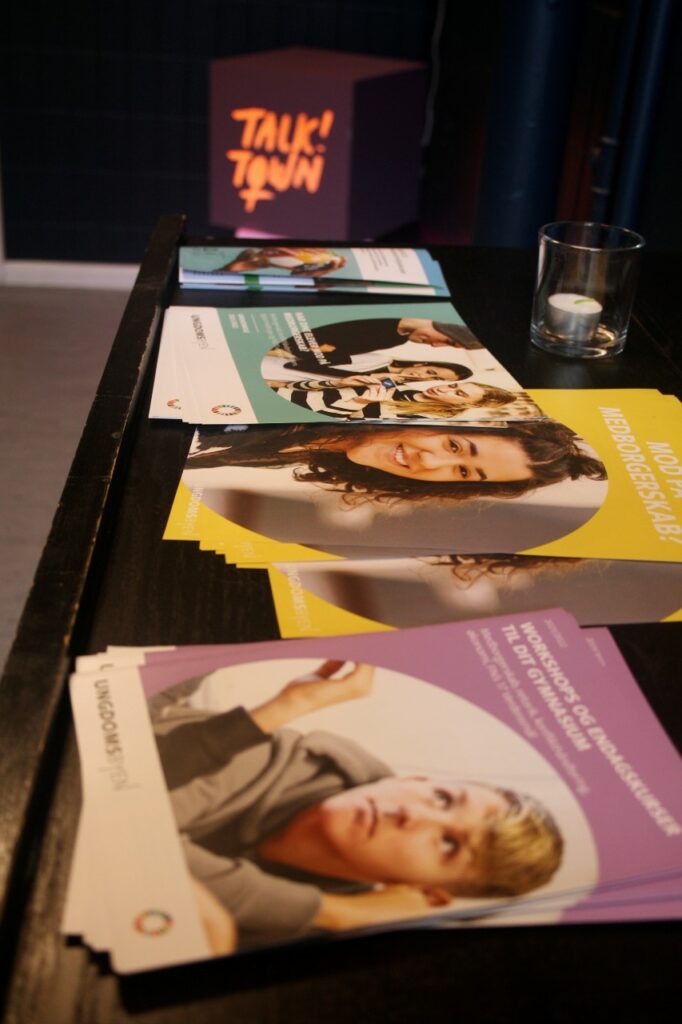
Talk Town and the festival’s partners do a great job in educating the next generation within diversity and equality. But the adults need the education as well.
Come to think about it, sociologist and feminist Emma Holten does have a point, as she takes part in a debate with Danish Institute for International Studies (DIIS) about the Debt Pandemic.
– Money must be taxed in the country where it is earned. That will earn us a lot more equal taxes, Emma says, rounding up on a debate in which it is – once again – clear how unequal resources are shared on the global market. Or even in Europe. Too many companies are seated in Dublin, just to benefit from the low taxes of Ireland, but they are not necessarily hiring more people or selling more goods in Ireland. This must kill a lot of local innovative start-ups 🙁
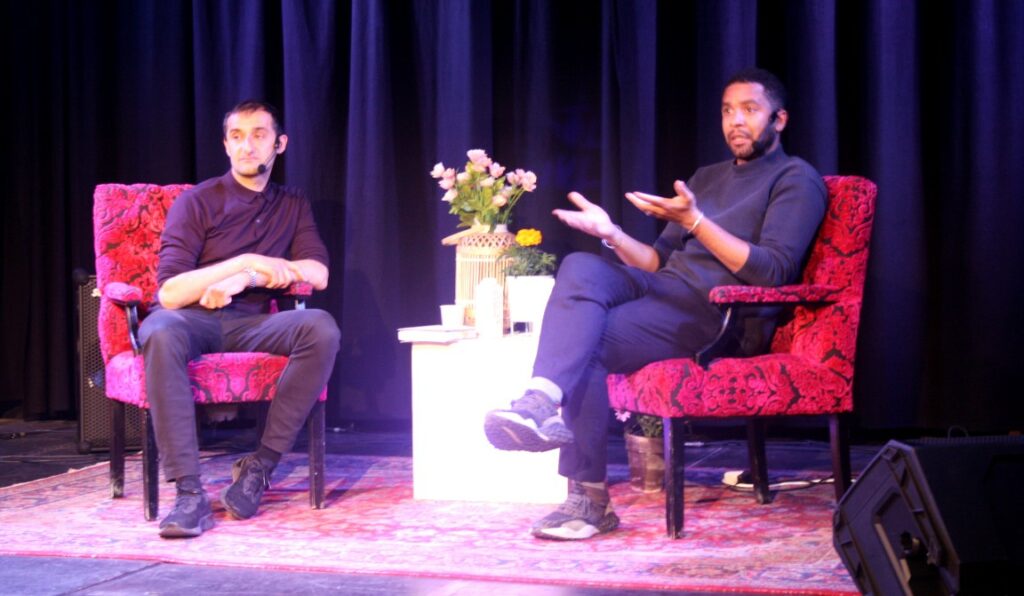
One of the last dialogues I watched Thursday afternoon was between sociologist and author Aydin Soei and chairperson in Mino Danmark and entrepreneur Moussa Mchangama, talking about the task of being a father today.
The talk moved me.
Aydin is a divorced father to an eight-year-old son. The mother of his son is white upper middle class, and once the boy was born, he was so relieved to see that his skin turned out white! Meaning that he would have a much easier life than his father has had … even in Denmark. It really breaks my heart that he feels like that, and even more, since I know he is right. Working as a sociologist he has spent years trying to fight prejudices and writing about it too.
Moussa’s story of being a father is quite different. He has chosen to have a baby with two other women, all three of them being an equal adult to share the parenthood. This really rocks the traditional way of being a family, and he admits having to spend a lot of time explaining and justifying his choice, sometimes leaving him completely exhausted (he is currently on “maternity leave” so he does know what the word exhausted means … and I guess we will have to come up with another gender-neutral term in English … how about “family leave”?).
Our legal system is not at all designed to work with three parents. And neither is the labour ward at the hospital. However, Moussa says that he meets understanding from humans, seeing the three parents; but the system never sees all of them. Hopefully, this is about to change as he raises his daughter is what he calls a “norm-critical, feminist, anti-racist family”.
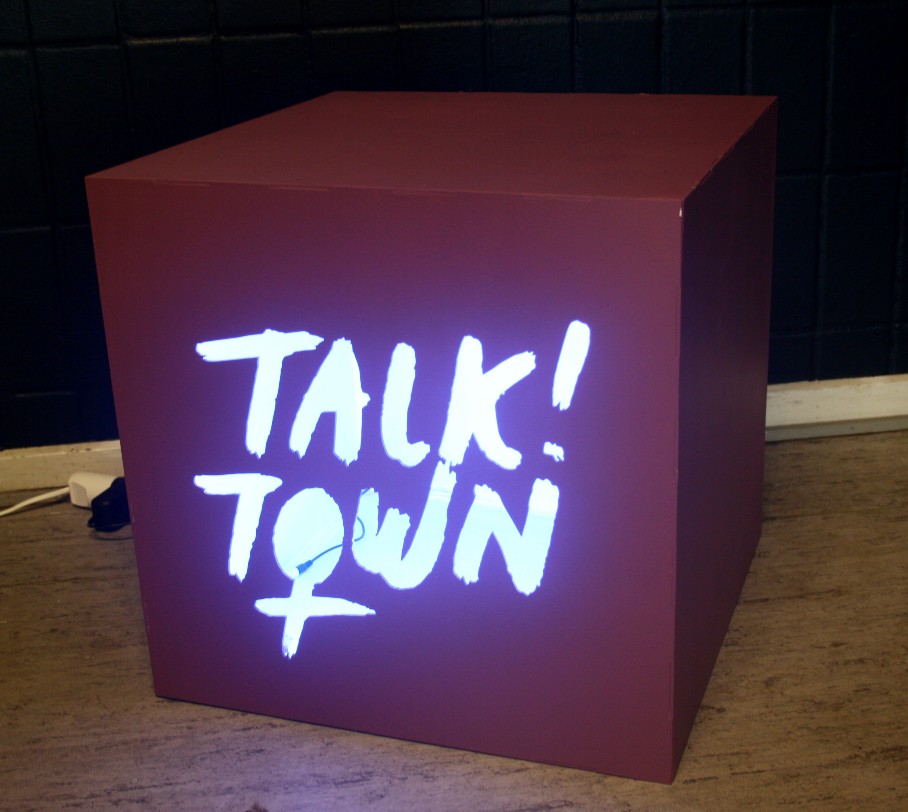
“Freeee your mind – and the rest will follow!” As I leave for the day, the old pop song by En Vogue plays through the yard.
I really wish to come back for more talks, workshops and debating during the next days.
If you are anywhere near Copenhagen, join me 🙂 It’s free, fun, thought-provoking … and most of it will be indoor as the weather seem to be chilly and rainy for the festival-season this weekend.
Let’s be talk of the town! 😀





